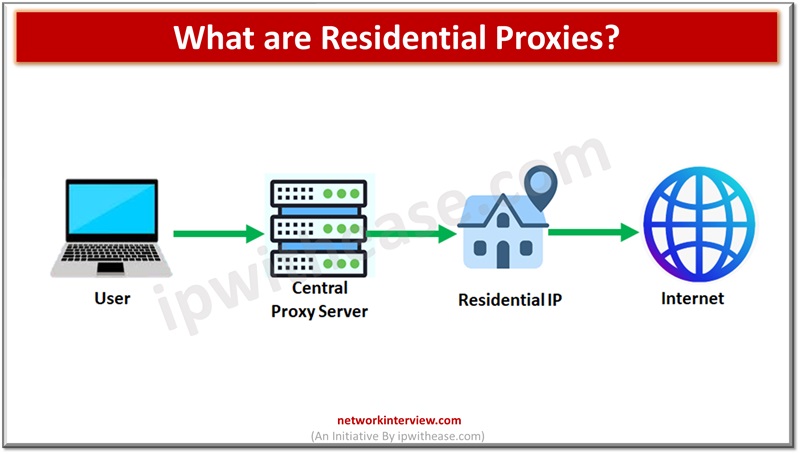
Residential Proxies: What Are They?
Many active Internet users know about proxies and VPNs, but there is an easier and more flexible way of staying anonymous. Find more information about it right now!
What are Residential Proxies?
A resident proxy is an intermediate server through which you interact with the Internet using an IP address provided by a foreign ISP, not a data center, as is usually the case. Each resident proxy has a unique physical location, and it often appears to be a standard user connection to the intelligent systems of the target Web platform. That is, to the outside world, it is a normal “home” address with a normal user behind it.
Today, many social networks or large platforms can see exactly who hides behind an ordinary proxy. Therefore, the right investment in the future success of Internet search will be the purchase of cheap residential proxies.
A global community is the essence of the modern Internet. Recently, providers in many countries have blocked content so that it is only accessible from certain countries or regions due to various political, legal, or technical conflicts. There is already a real-life example of the blocking of access to US public libraries’ Internet resources from outside the country, due to library policies.
Access can be blocked not only because of your location but also if there is suspicion of automated data collection or hacking attempts. Sometimes, this can happen unexpectedly — for example, there are a lot of WordPress plugins out there that allow you to automatically publish your posts to social networking sites such as Facebook, which will detect such bots or scripts, and your IP address may be blocked and you may no longer have access to the site. One of the most effective ways to get around these restrictions is to use a resident proxy.
Applications of Residential Proxies
Residential proxies can be used for market research, business automation, social media, network penetration testing, retail, parsing, and bulk account enrollment. Here are some industries where this solution can be used effectively:
- Social media management – This allows users to manage multiple social media accounts from multiple global locations, avoiding suspensions or bans. Also, many exchanges do not allow multiple accounts, which can be easily bypassed with this solution.
- Market research- Modern companies use proxy servers to automatically collect market information (data sets), including pricing information, customer behavior, and product trends, enabling them to make informed decisions using data science.
- Advertising verification – Advertising companies use a resident proxy to verify that their ads appear correctly and whether ad blockers are not blocking them.
- Entertainment – Proxy servers allow users to enjoy their favorite entertainment from anywhere in the world by accessing geographically restricted content such as streaming services, TV channels, or gaming platforms.
Advantages of Residential Proxies
The main advantages of residential proxies, most frequently cited by vendors and chosen by users, are also worth mentioning.
- Speed – Proxies tend to be faster because they don’t encrypt all of your traffic like a VPN does. They also decrypt traffic on the fly, so they don’t slow down your computer. For those looking for faster access to websites, this can be an important factor.
- Task specificity – If you only need to get around restrictions for specific websites or applications, a proxy can help you get around those restrictions while still allowing other Internet traffic. A VPN, on the other hand, routes all traffic through one server.
- Easy to set up – Proxies are usually easier to set up and use. For those who need to quickly change their IP address without installing additional system software, they can be an ideal solution.
In summary, a proxy is a lighter and more flexible solution. Also, in some countries, there is a “hunt” for VPN solutions. They block them at the protocol level, which makes all VPNs unusable. Proxies are more reliable because they remain in the shadows and do not attract the attention of states.
Continue Reading:
Residential IP vs Data Center Proxies: Complete Guide
CASB vs Proxy: Understand the difference



